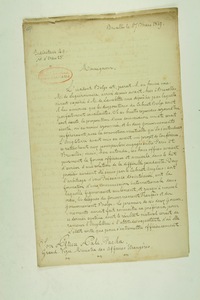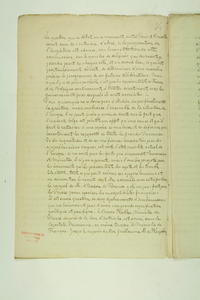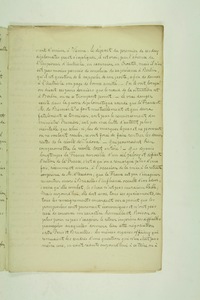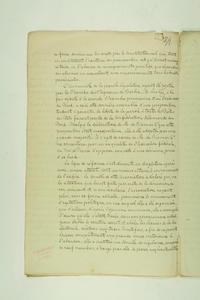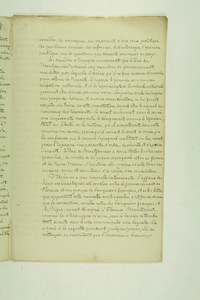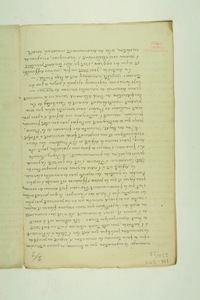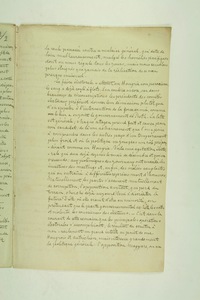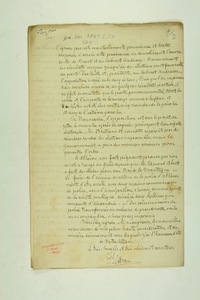Ottoman Diplomats
Letters from the Imperial Legation in Brussels (1849–1914)
Synopsis
Glavany foresees a positive outcome for the Belgian railroad incident. England posed itself as a mediator. After explaining the incident and the possible solutions, Glavany places the issue in a European context, and notes that it was an effect rather than a cause of the malaise in Europe, for suspicion characterized all relations between the Great powers in Europe. He also attributes great importance and a big political and pacifist significance to the transfers of two Austrian diplomats. This leads him to conclude that the Prussian-Austrian relations were less of a concern than the French-Prussian relations. Glavany foresees a serious conflict between Prussia (Bismarck) and France. The discussion between Belgium and France concerning the railroads, however, should not be exaggerated in Glavany’s opinion, since it was an economically oriented discussion. In the remainder of his letter, Glavany summarizes other facts, such as the parliamentary debates in Germany, concerning the MPs’ freedom of speech. He also refers to the English reform league which had been dissolved. In Spain, Duke De Montpensier declared that it was not his intention to become King of such a divided country. He was however a popular candidate. In all European countries (even in Prussia), there was an economic deficit. Italy would sell goods from the clergy and needed loans. Economic negotiations between Italy (M. Nigra) and France (French bankers) would make an alliance between Italy, France and Austria. Glavany seems shocked about the new taxes Prussia wanted to impose to solve its deficit. A real solution, however, seemed far away. Glavany also adds some information about the elections in Romania, and the electoral fever and violence in Hungary. It seemed that the government would win in Hungary. About Greece, Glavany notes that nothing seemed to have changed, and he reports about an incident within the police force of Athens.
Facsimiles
How to cite
If you use this website for your own research, we kindly ask you to mention the following reference in your publications:
Consulted online at Ottoman Diplomats: Letters From the Imperial Legation in Brussels (1849–1914) (2014 Edition), Centre for Political History (PoHis), University of Antwerp, <http://dighum.uantwerpen.be/ottomandiplomats/>.
